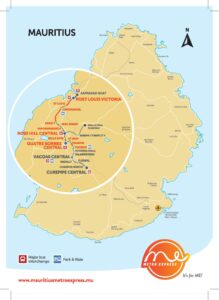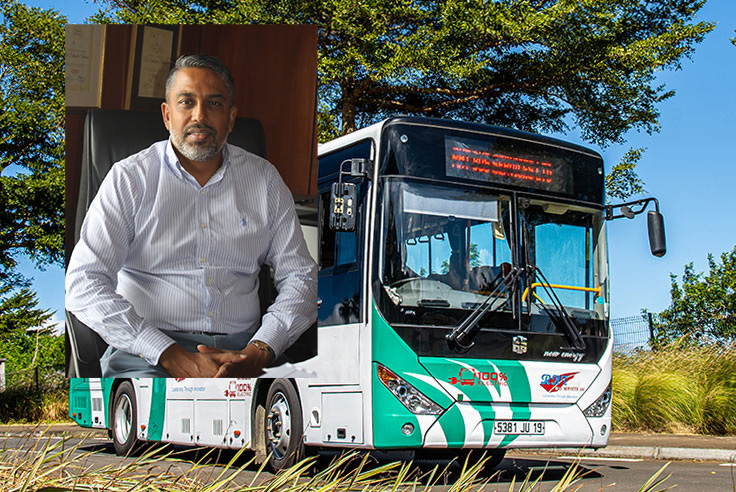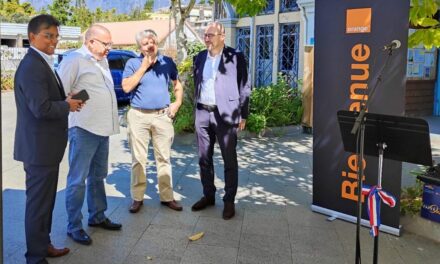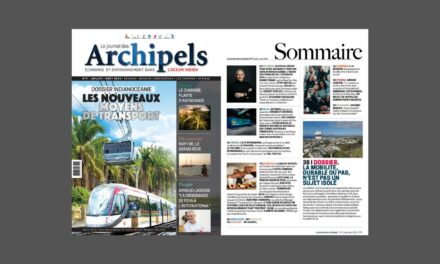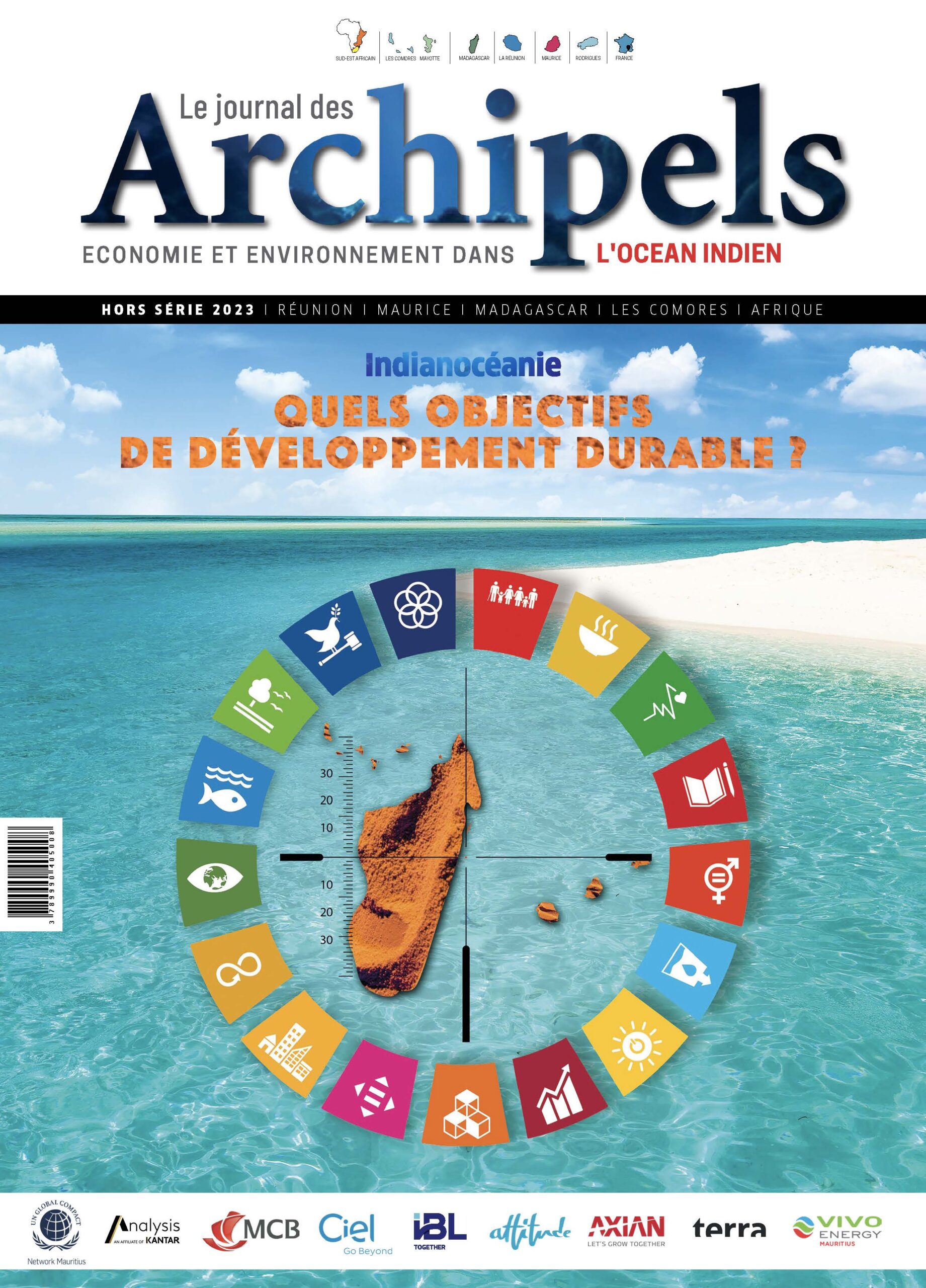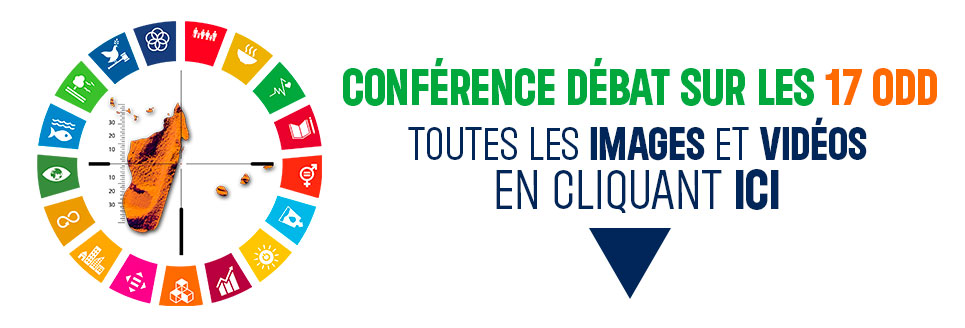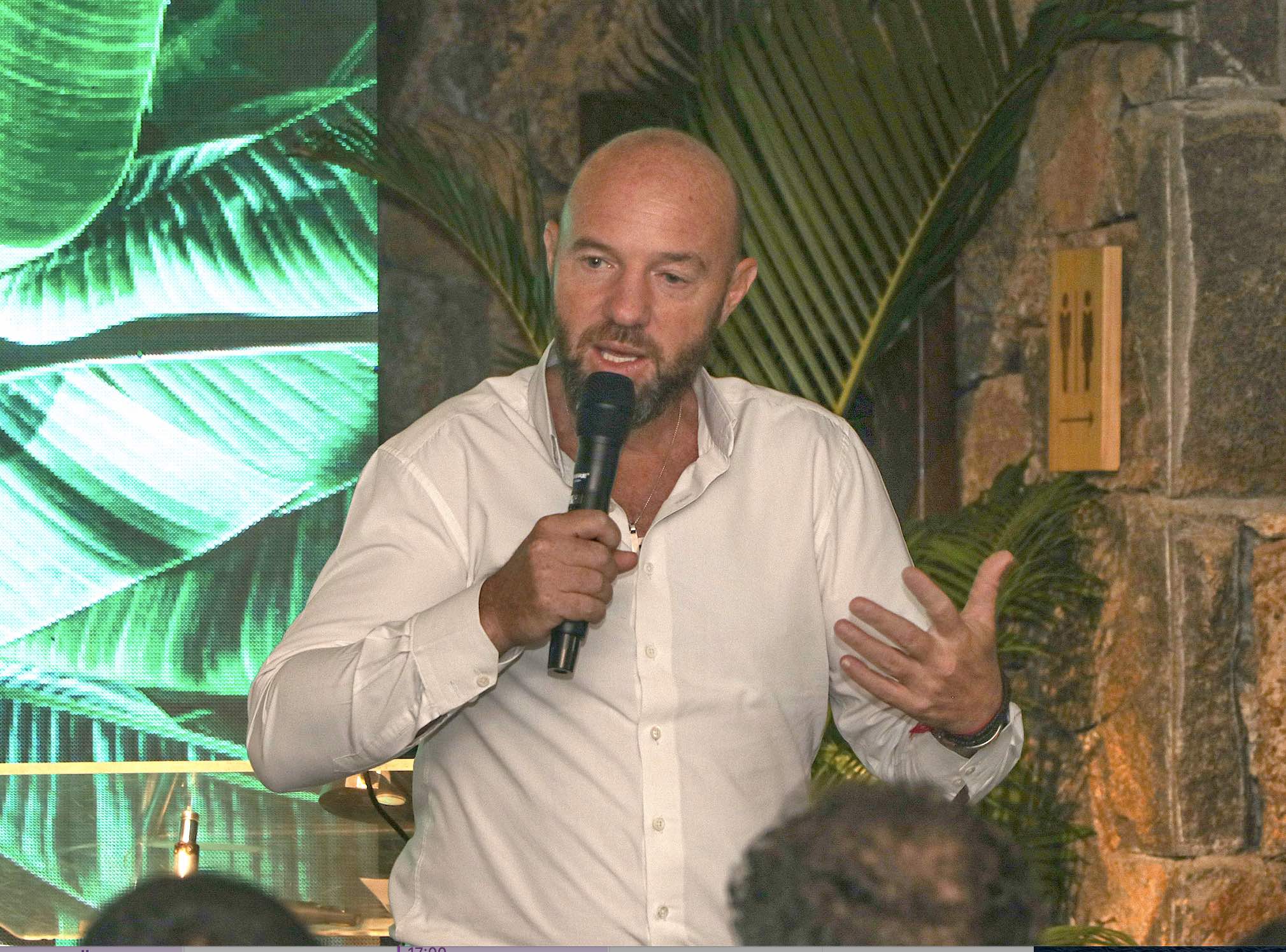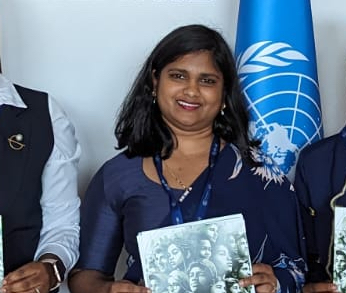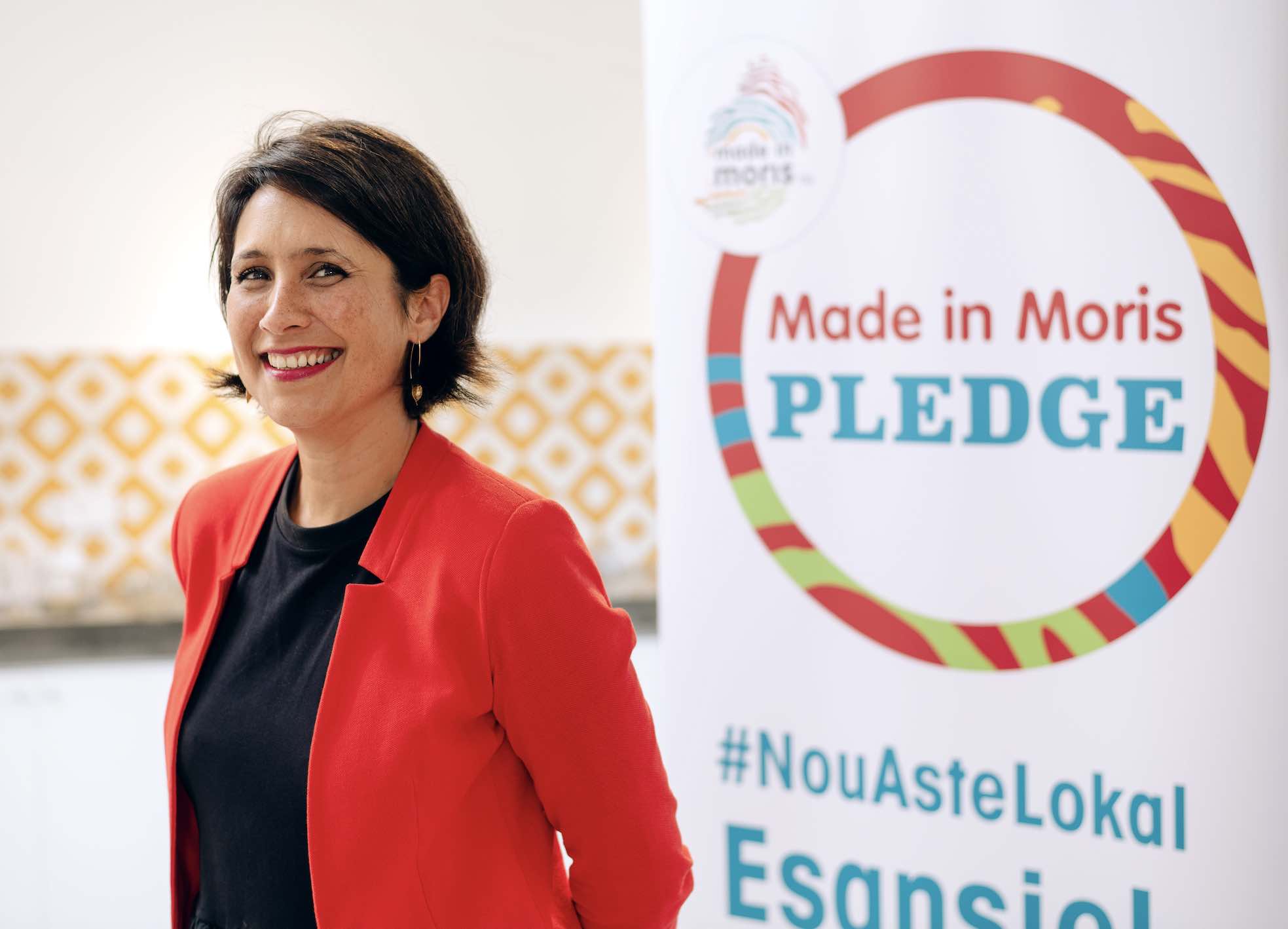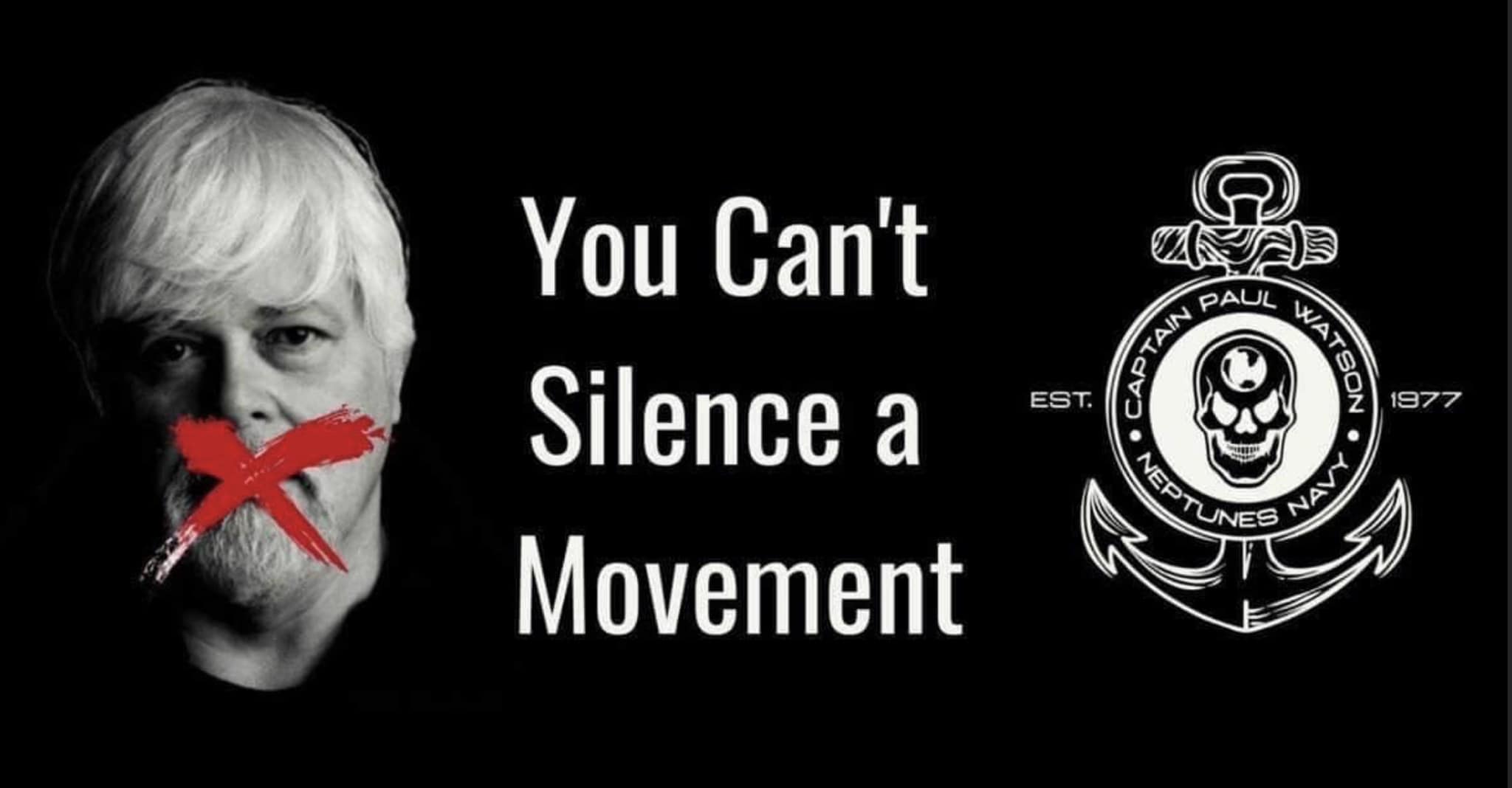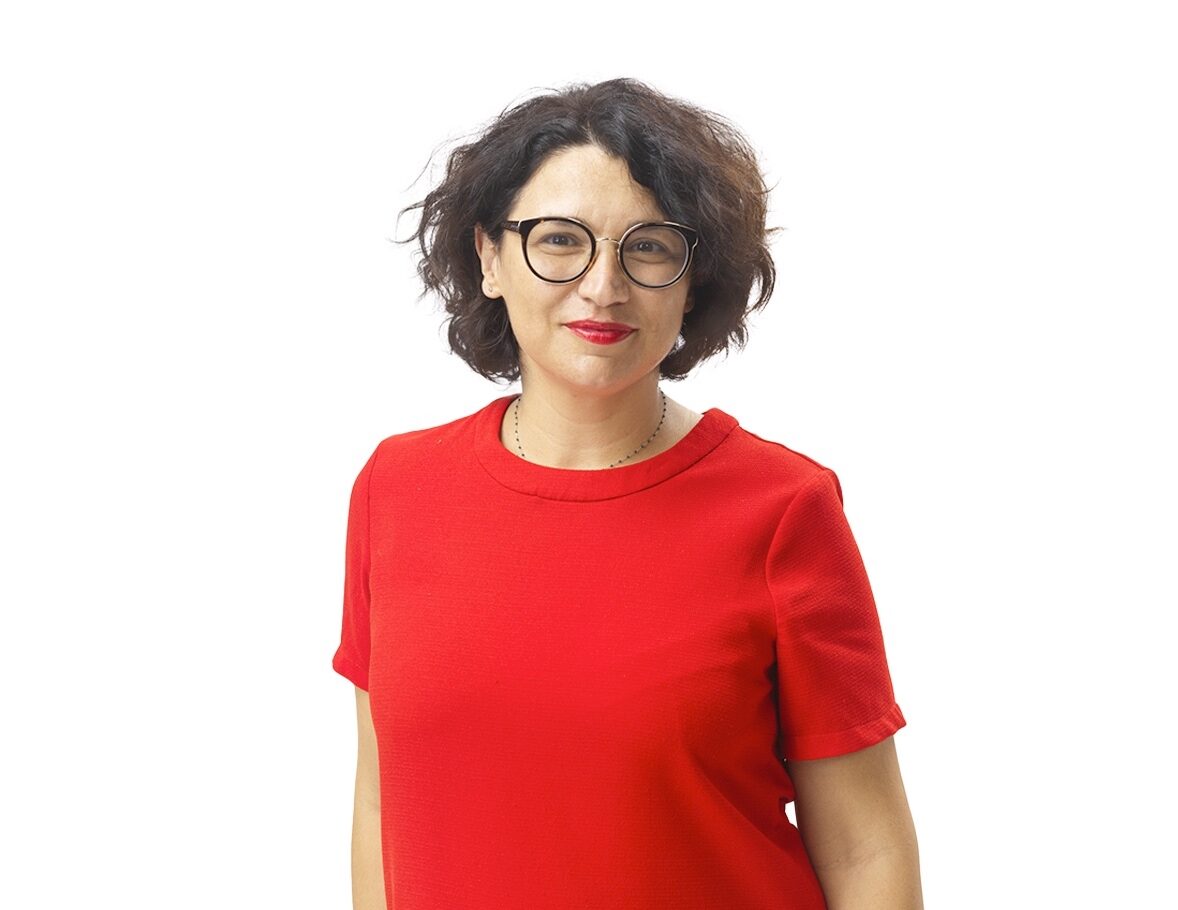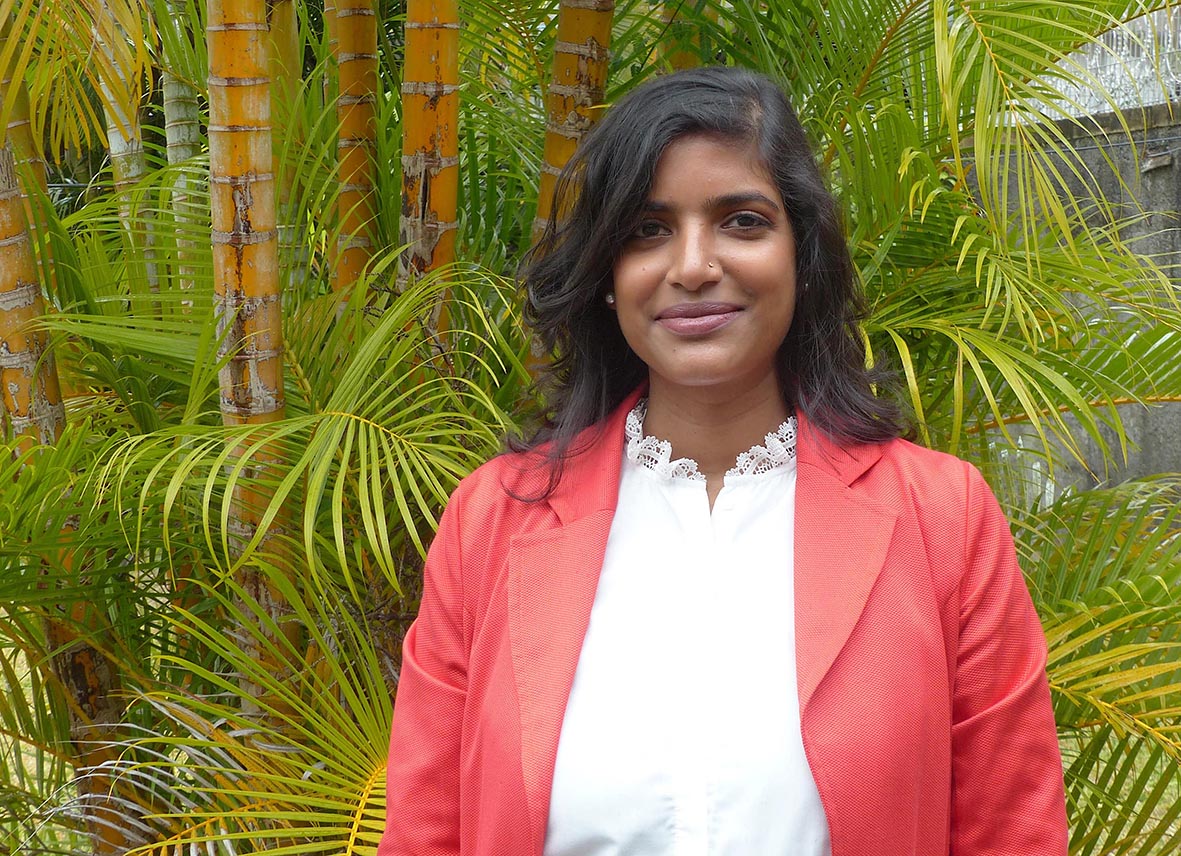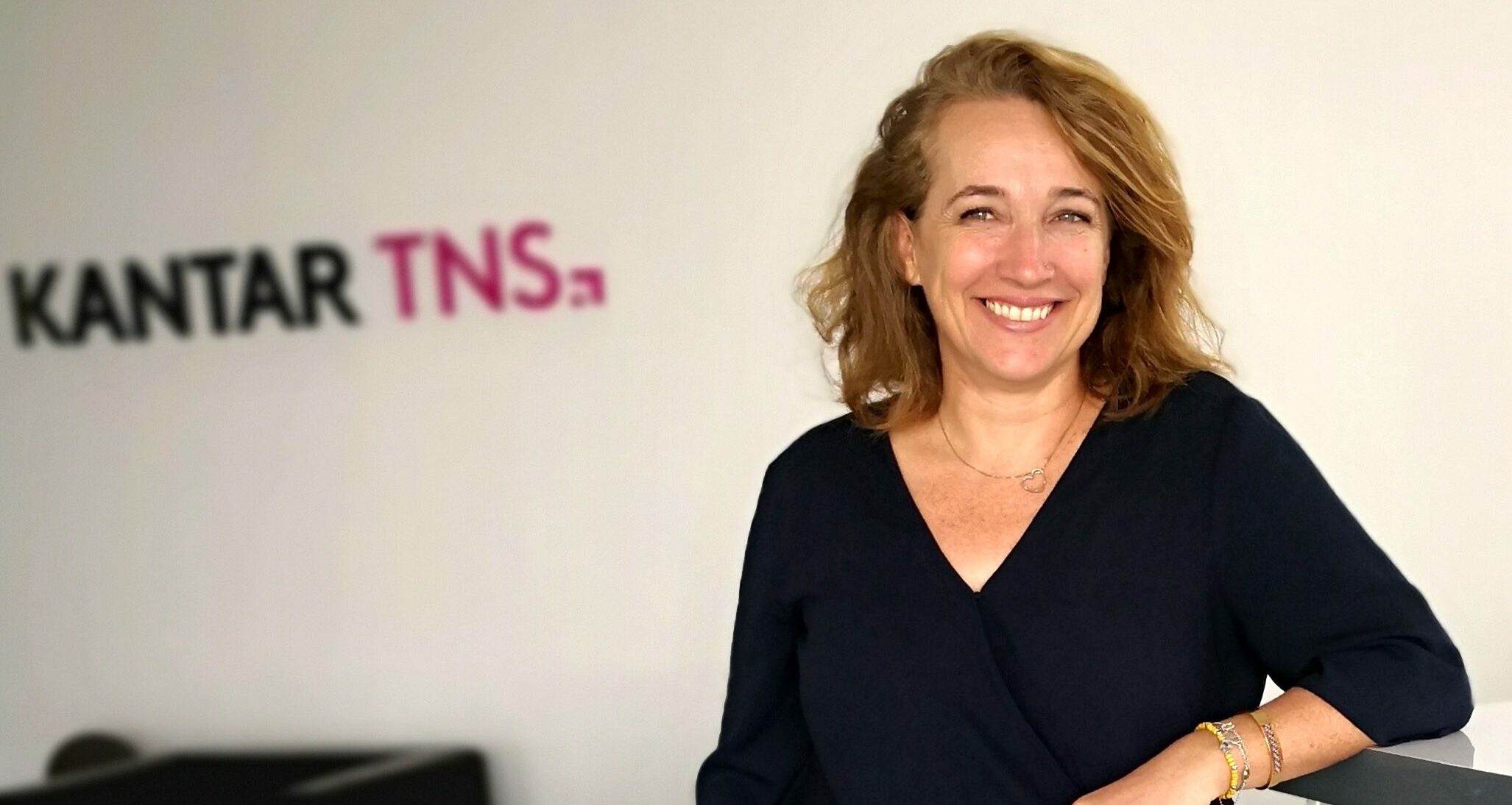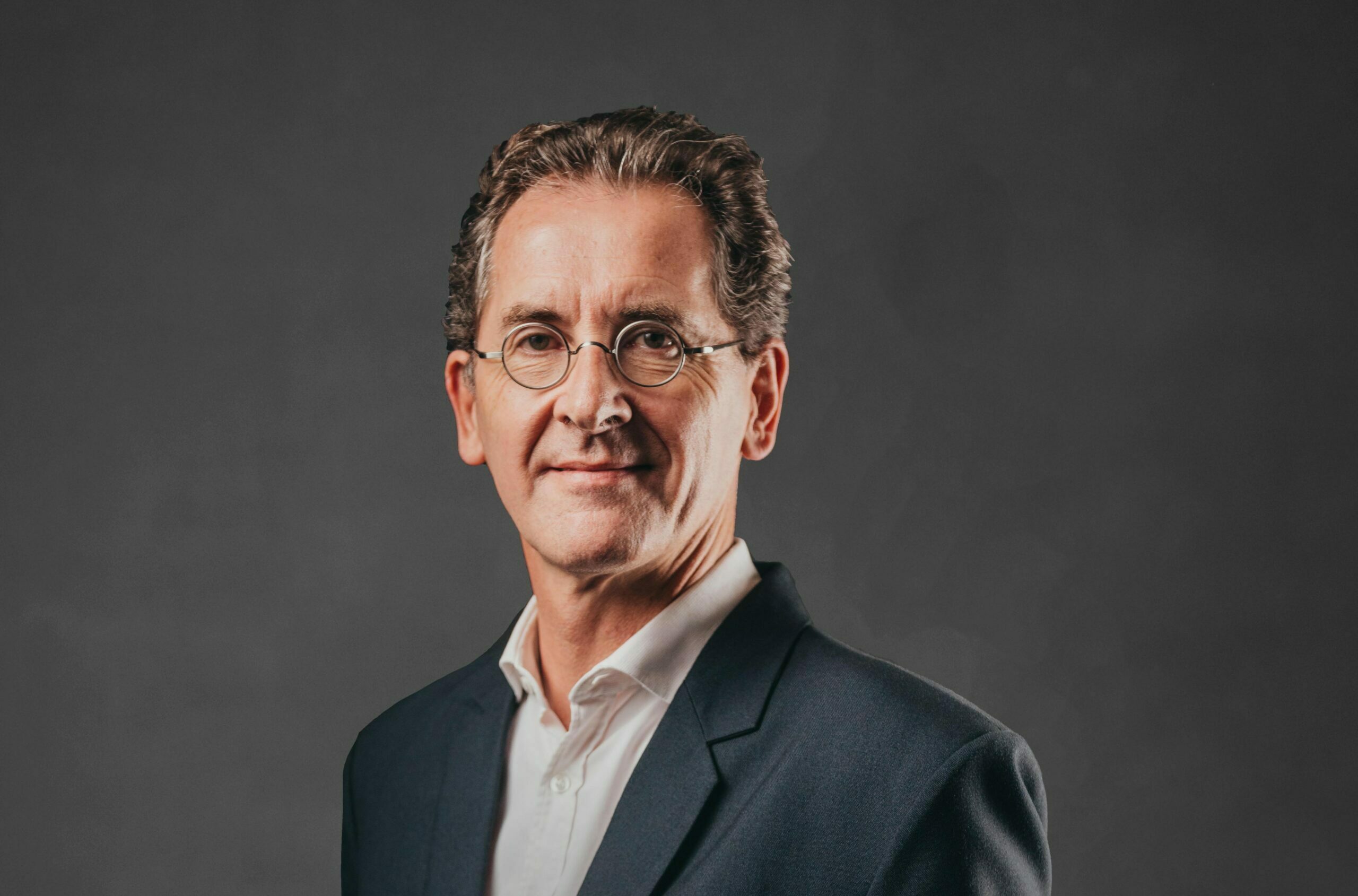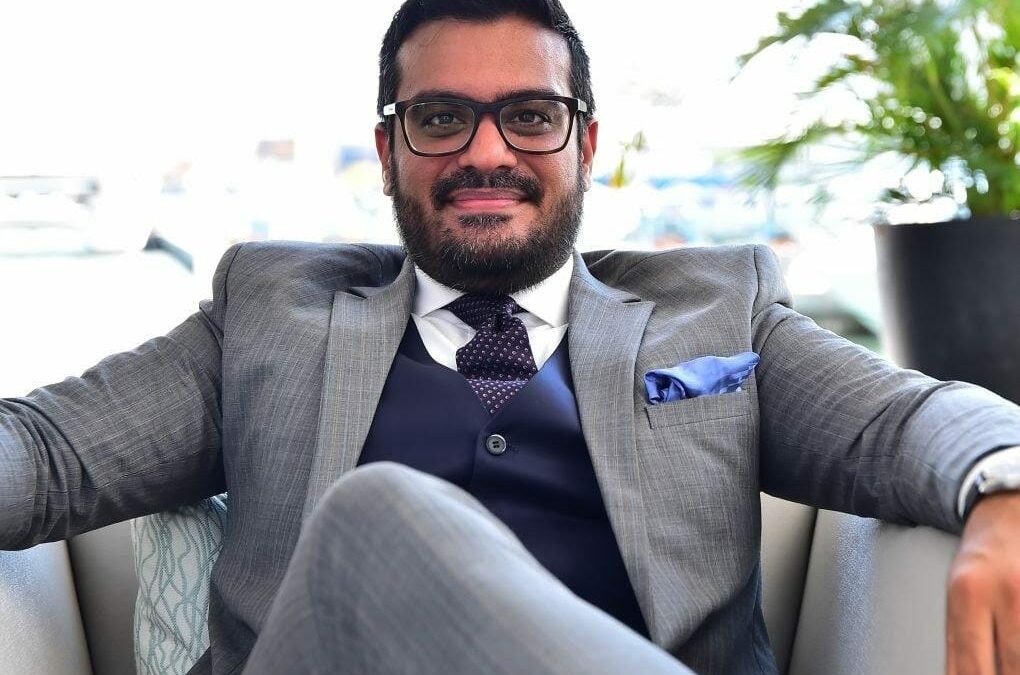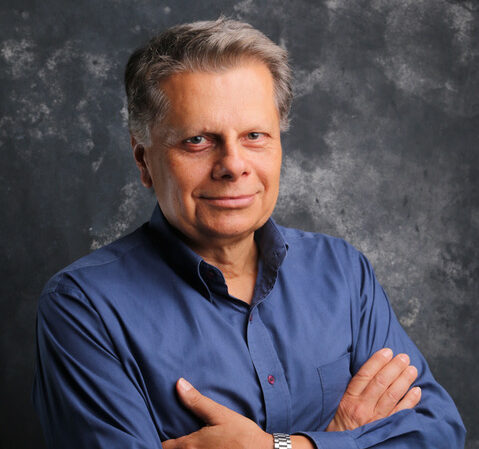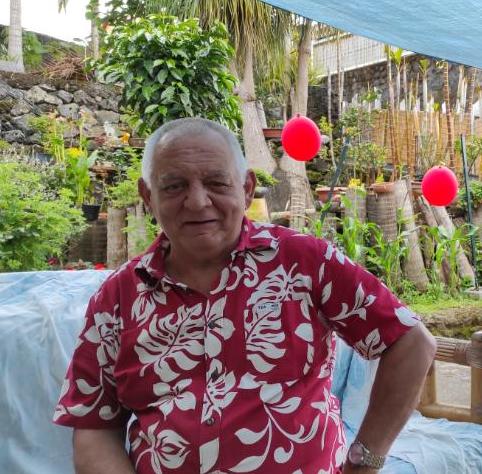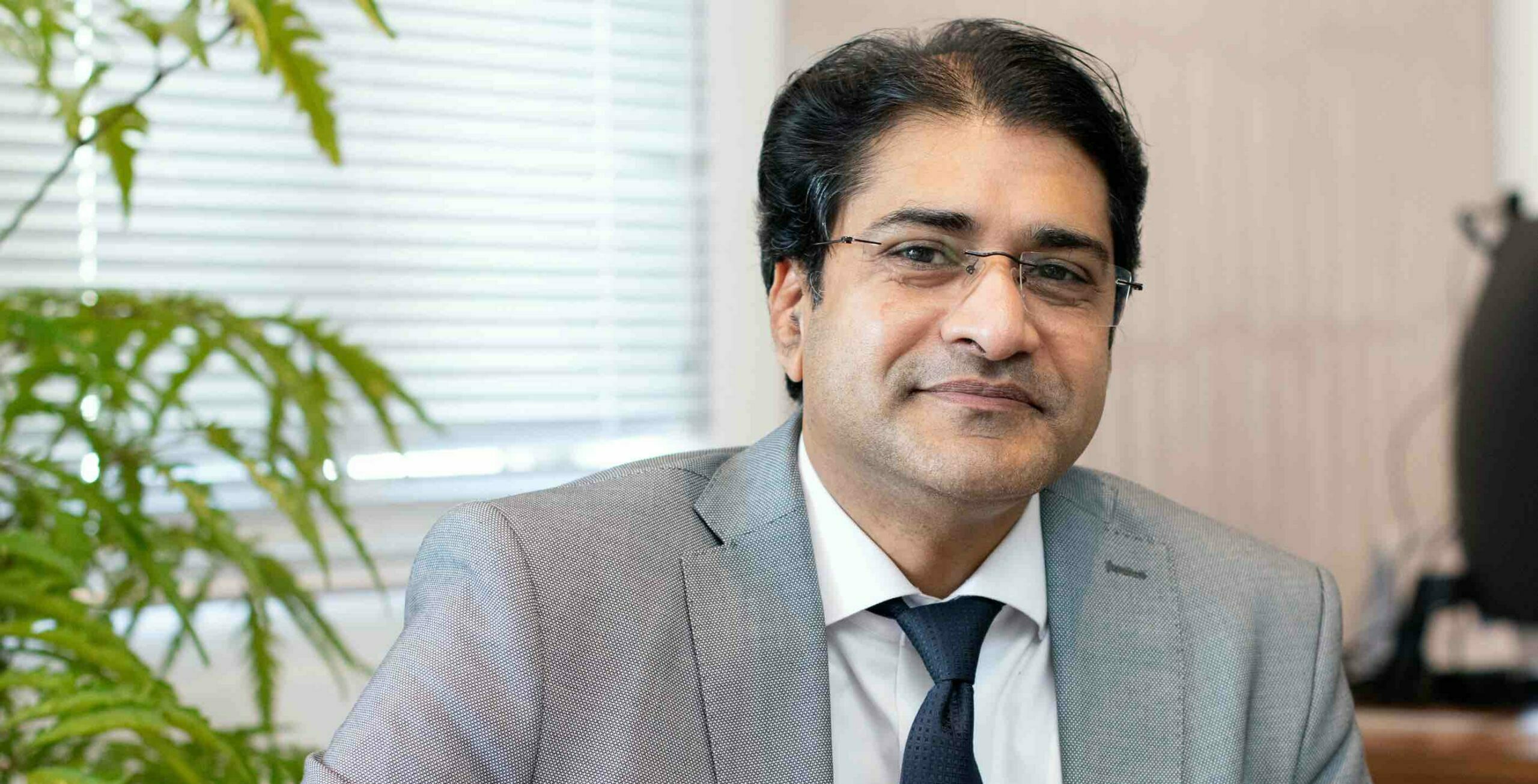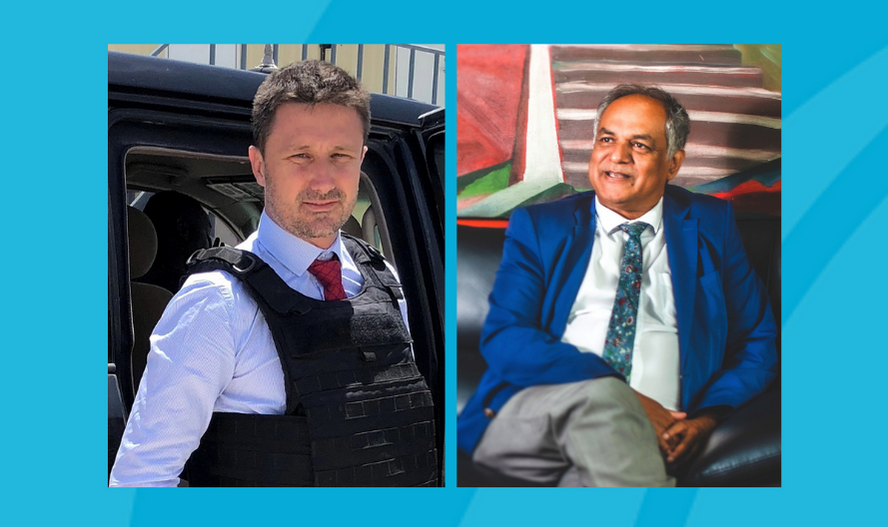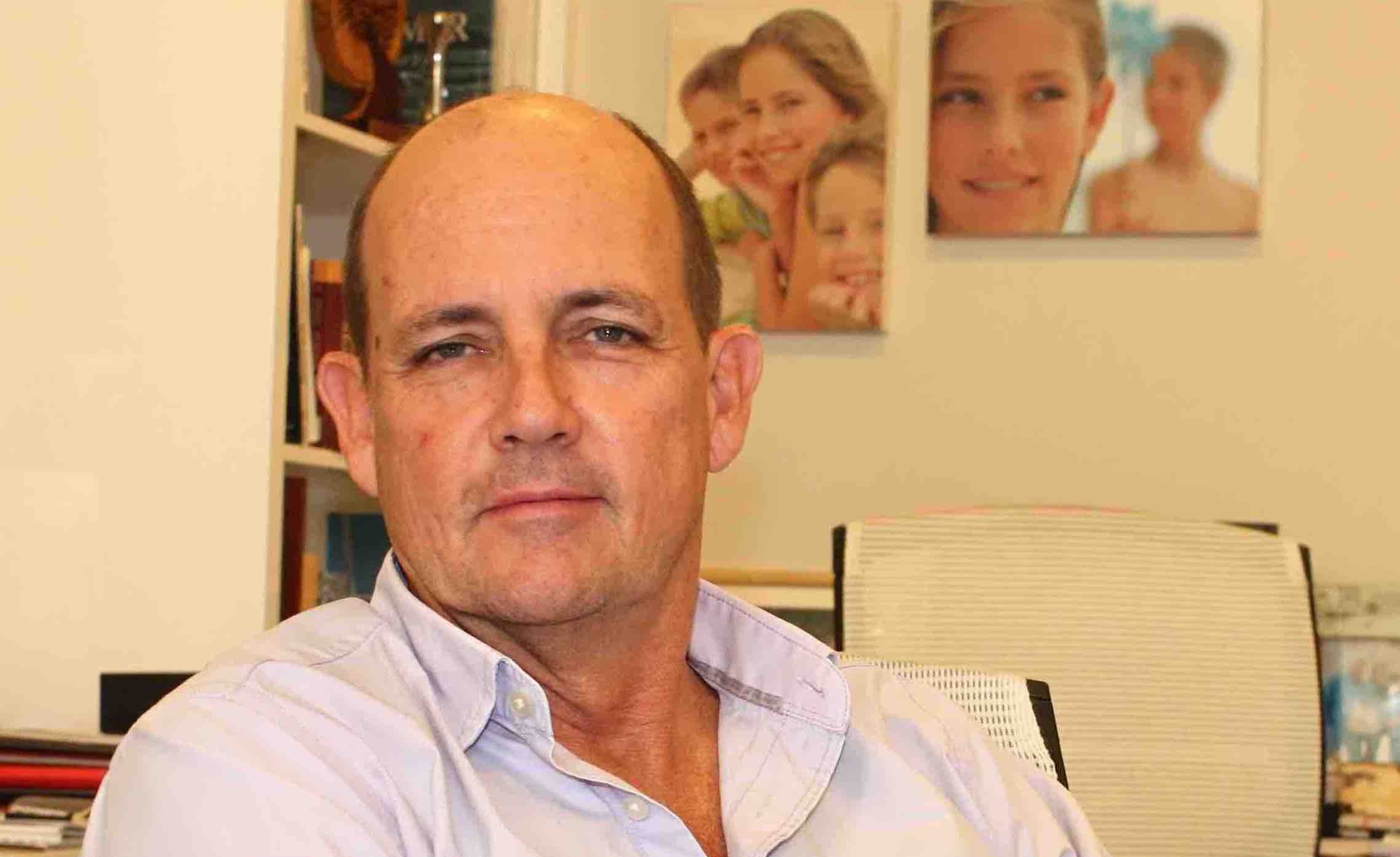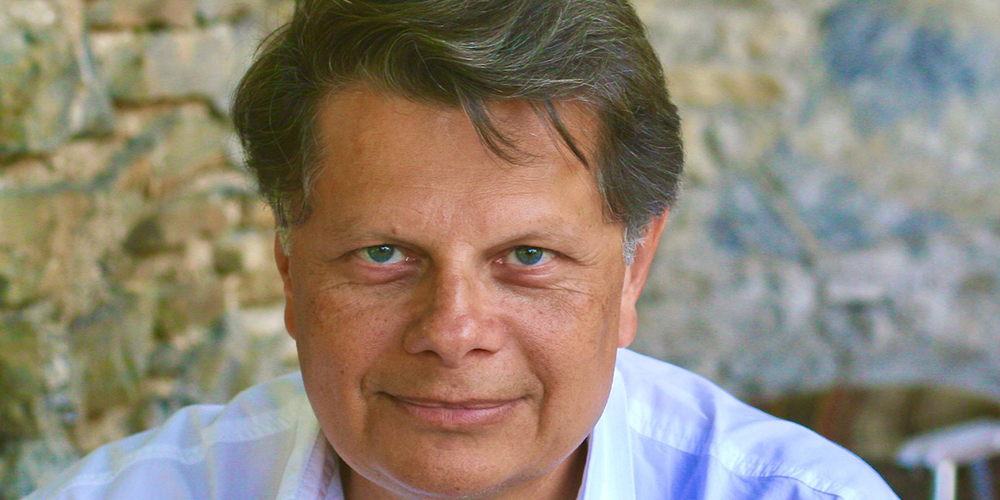The family-owned Rose-Hill Transport (RHT) group is known for its bus company, which is one of the oldest on the island. Today, the group has diversified and invested in different services around mobility, without abandoning its historical core business. For its CEO, Sidharth Sharma, major reforms are necessary for the rebirth, and even the survival, of a quality public transport system in Mauritius.
Inset: Sidharth Sharma, CEO of the RHT conglomerate, is a doctor of telecommunications. He is a respected businessman in Mauritius for his expertise and experience in mobility.
PHOTO: Alexandre Karghoo
“We have just received a rate increase after eight years… in an extremely difficult context”, begins Sidharth Sharma, the well-known and respected businessman and doctor in telecommunications. “We have had several increases, including fuel (more than 40% since last December – ed. note).
We are in an environment of hyperinflation around 10%, we are coming out of the pandemic and we have a war in Ukraine that is likely to last,” he adds. Indeed, public transport has been suffering for many years for several reasons, including the almost exponential increase in the number of cars on the road and the fact that fares, regulated, had not been increased since 2014!
Another factor has been added to the equation since 2019, the commissioning of the Metro Express project, which at the time of going to press connects the cities between Phoenix and Port Louis, significantly affecting the revenues of the (too many) bus companies operating on this route. According to Sidharth Sharma, the Metro Express project has reduced his business by 40%. Another concern for the sector is that “there has been 40% depreciation of the rupee since 2014 which has exacerbated the situation. This makes it difficult to import buses that come from China or India.
In this difficult context, Sidharth Sharma proposes three categories of solutions: efficiency gain, mutualization and renewable energy. Because of the complicated global economic context, “today, we need to review the efficiency of the country and also that of companies,” says the CEO of RHT. “In tourism, we are not yet at our cruising speed, and despite efforts, the reality is that our reserves are at their lowest and we can assume that the government will put a lot of emphasis on import substitution for fruits and vegetables. The same is true to some extent for public transportation. In order to reduce external dependence on energy and thus better control costs, Sidharth Sharma is calling for incentives to be implemented to facilitate the purchase of electric buses.
The operating cost of an electric bus is lower than a thermal bus
RHT was one of the first companies to purchase electric buses. “We bought two electric buses and we have a lot of information about them. We know that even if they cost twice as much, the operating cost (Opex) is 60 to 80% lower. But we have to do things in a virtuous way, we must not go and draw on the CEB (national electricity supplier) network. We need to give incentives for photovoltaic panels. According to him, state subsidies are imperative to allow companies to buy electric buses at the same price as combustion engine buses.
Efficiency also means investing in innovation, as it is clear to Sidharth Sharma that the jobs are no longer attractive to young people. “Young people don’t want to do this job. A worker arrives at four in the morning and the days are long. Young people want better paying jobs and you can’t blame them. We need to move toward ticketing.” RHT had developed a driverless bus system but stopped it because the government had announced the implementation of a national ticketing system. This never materialized and remains at the project stage. “It will have to be reintroduced for all [all bus companies],” he says.
When it comes to pooling, Sidharth Sharma is mainly talking about procurement. “In Uganda (where the RHT group has been expanding for several years), we can see that it works. Uganda has imposed that the buses must be assembled locally in order to operate them.” According to our interlocutor, the national demand is for 140 buses per year. Some international companies have shown that it is possible to have small assembly units to satisfy such an annual demand. For example, the British company Arrival recently raised millions of dollars in the United States for its expansion. While assembling buses here may seem complicated, at the very least, the purchase of buses should be pooled; significant savings can be made not only in procurement but also, and more importantly, in the maintenance of the bus fleet.
The subway does not exist by itself anywhere in the world
Another necessity, according to Sidharth Sharma, is the redesign of public transportation, which must be thought of as a whole. “We have to take the bull by the horns. Sidharth Sharma acknowledges that the Metro Express project is a beautiful project that is taking the country in a good direction. But he says it is crucial that the project be “sustainable” soon. “The metro doesn’t exist on its own anywhere in the world. One suggestion is to divide public transportation into three categories: long-distance trips that are 20 to 30 km long (or 50 km if the rails were to cross the country from north to south); then buses, “electric”, that would make trips of a dozen kilometers or so; and finally, micro mobility for trips of about a kilometer, on a scooter or bicycle, “instead of going to compete each on the same roads. Between Rose-Hill and Port-Louis, there are four operators! It’s a zero-sum game. You have to give everyone their own space. I understand the regulators and my suggestion is to give a specification attached to the subsidies.
Counterintuitively, Sidharth Sharma does not suggest limiting the number of cars on the road. “Buying a car is not an issue. It’s the use. And despite the autobridges (built by the government in recent years – ed. note), traffic jams are not stopping.” Thus, he even suggests lowering taxes on vehicles under certain conditions, including the need to have a garage, that the car is not a second vehicle for personal use and especially that the tax is determined by the use that will be made of the vehicle.
The last part of Sidharth Sharma’s suggestions concerns the production of renewable energy. Investing in electric mobility is not enough, the energy must be from a renewable source. Beyond subsidies, as called for by the Mauritian business community, Sidhart Sharma believes that the buy-back conditions for electricity have a hard time encouraging investment in photovoltaics because the payback period is long. However, RHT plans to tap four acres of land to produce 100% of its consumption. “There are very few companies that will be able to do this, and that’s where the government needs to step in,” he concludes.
This interview was conducted prior to the presentation of the government budget in early June.
This article is the long version of the subject already published in our last edition of the magazine.
PHOTO Metro Map (DR)
The Metro Express will run 26 kilometers on the main route and an additional 3.4 kilometers to connect Réduit to Rose-Hill, and will have 19 stops for a 45-minute trip between Curepipe and Port Louis.
